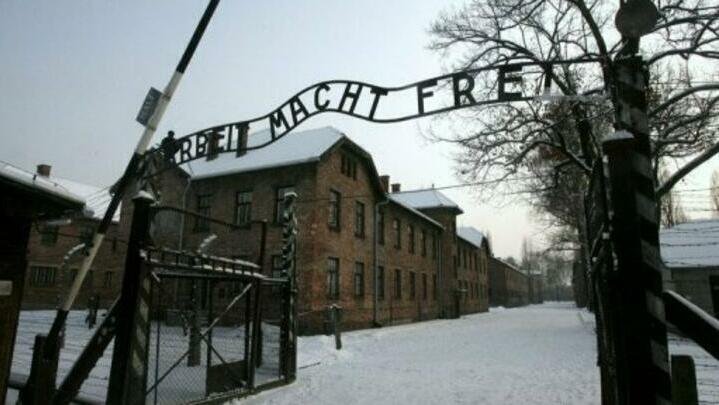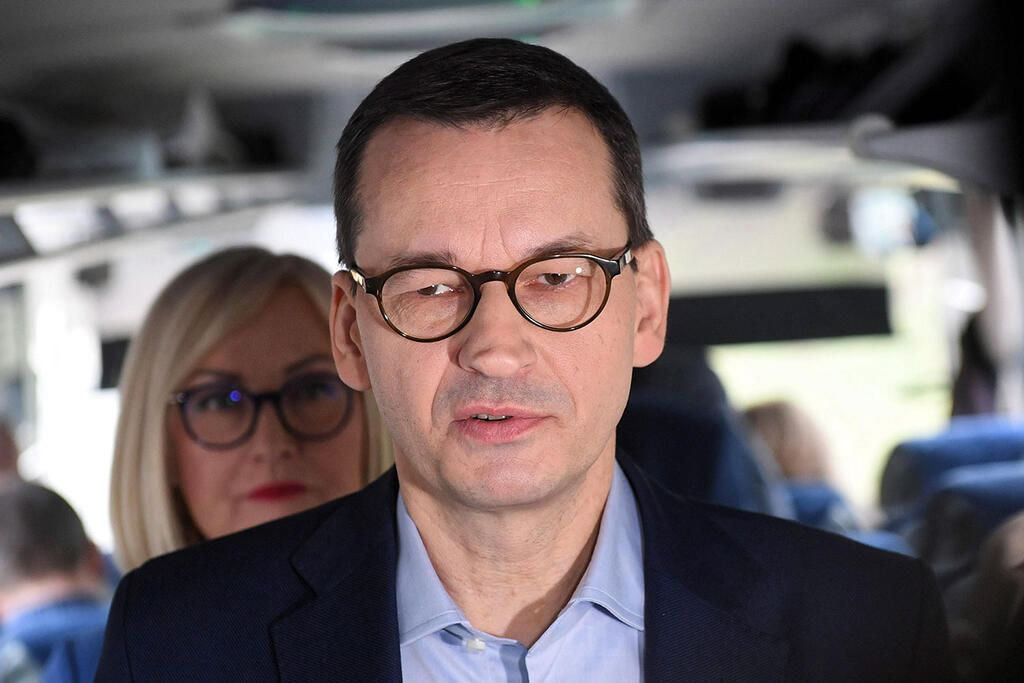A Polish anti-vaccine rally organized by far-right lawmakers drew criticism Wednesday for using a slogan referencing the infamous Nazi German sign above the gate to the death camp Auschwitz-Birkenau.
In a play on words on the "Arbeit Macht Frei" ("Work Makes You Free") sign, protesters held up a banner that said in Polish "Vaccination Makes You Free".
2 View gallery


The sign 'Arbeit Macht Frei' (Work makes you free) is pictured at the main gate of the former Nazi concentration and extermination camp Auschwitz
(Photo: Reuters)
Members of the far-right Confederation party were photographed with the banner at their demonstration "against sanitary segregation" late Tuesday.
The slogan triggered sharp criticism from Israel's charge d'affaires in Warsaw, Tal Ben-Ari Yaalon.
"Most of my father's family was murdered in Auschwitz along with more than a million other victims. This sign is disrespectful to their memory," she tweeted on Wednesday.
"I find it unbelievable that such Holocaust distortion can happen 300 km from where the original sign stands," she added.
The Auschwitz-Birkenau Museum also condemned the move.
"'Arbeit macht frei' is one of the icons of human hatred. The exploitation of the symbol of suffering of victims of #Auschwitz, the largest cemetery in Poland and the world, is a scandalous expression of moral decay," the museum tweeted.
"It is particularly embarrassing when it is done by Polish MPs."
Poland's Prime Minister Mateusz Morawiecki for his part said the banner provided a "dramatic and dark picture of just how low some politicians and protesters can fall with their thoughtless, anti-vaccine rhetoric."
The Confederation lawmakers' presence at the rally fired up their fellow MPs on Wednesday, with the opposition chanting "No to fascism!" and calling for the politicians involved to be barred from the chamber.
Confederation lawmakers are regularly excluded from parliamentary sessions for refusing to wear masks.
Poland introduced new pandemic restrictions on Wednesday, as the COVID-19 daily death toll hit its highest level since April of 669 deaths in the country of 38 million people.
Auschwitz-Birkenau has become a symbol of Nazi Germany's genocide of six million European Jews, with one million killed at the camp between 1940 and 1945.
More than 100,000 non-Jews also died there, according to the museum. An estimated 232,000 of the victims were children.


